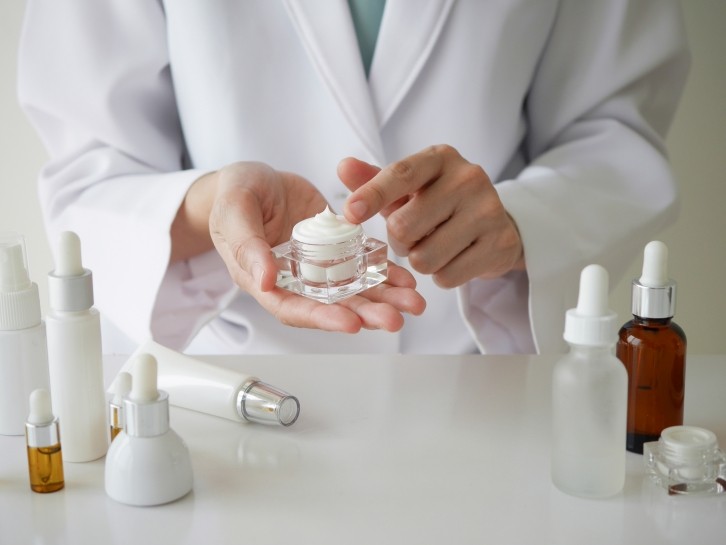“Sometimes we may be at a disadvantage by using the term cosmetic product": CTPA director on the 4 challenges for the beauty industry in 2024

Political change on the horizon
“I think 2024 is a very unusual year as we have three major sets of elections. In the UK, we have a general election in November, we'll also have the US presidential election, and it's a new term for the European Commission, European Parliament and Council.
Three key areas of the world could go through seismic changes and there could be different governments in all three of these areas, so I think that would be a challenge of what could lie in the future. So, there's a lot of potential change and – as we know – industry thrives on certainty.”
Mounting sustainability legislation
“There are a huge number of environmental and sustainable legislative frameworks and whether that's being in the UK, in the EU, as well as individually in Member States. So how do companies keep on top of that? How do they know what's coming out and what their legal obligations are?
It’s a challenge that’s difficult for all sizes of companies, but for smaller companies it is a huge challenge, as they only have a finite amount of time. So where do they put their focus?”
A more ‘hazard-driven’ approach to ingredients
“We are now seeing a more hazard-based approach to ingredients at an EU level. I think this is an area of concern because the UK legislation is risk-based, and ‘risk versus hazard’ is a complex notion.
For example, we take risk assessments every day of our lives. When we cross the road, we make a risk assessment and know when it's safe to go or not, and that in a very simple form is what we do with our cosmetic products. A safety assessor looks at products to see if there are issues of concern in how any ingredient or product is used. And if there is, it would be banned from being used or marketed.
However, when you base those decisions on ‘hazard’ rather than ‘risk’, it's a very different approach, as everything is a potential hazard – for example water is dangerous if you inhale it.
The great thing about the UK’s current Cosmetics Regulation is that we take that substance and apply a risk assessment. So, we say, yes if I were to fall in a vat of that substance it would not be good for my health, but we're using it in a very small amount. We will also consider if it's a rinse-off or leave-on product, and we know the number of times it's likely to be used and in that particular scenario, if there is absolutely no risk of harm to human health, which is the absolute fundamental of safety.
But if you start to ban substances based on hazards, you’re cutting off any route to doing a risk assessment. And when you ban a substance, you are cutting down the amount of ingredients you can use. And that is not just for cosmetics; it's for any sector.
When you look at it from the risk assessment, there will be substances that you think aren’t safe to use and therefore they will then be banned. But banning something on a sound scientific risk assessment, rather than just on the potential ‘hazard’, is what we want to see.
Obviously, we're not defending the use of unsafe products when you've done the risk assessment, but we want to be able to get to the point where we can actually do this risk assessment, rather than it being based on ‘statistical properties’.
I think at an EU level, if the chemicals strategy for sustainability goes ahead, there could be more hazard-based bans.
Globally, lots of countries look to the EU, so there could then be a global move towards more hazard-based approach. The UK regulators have always said to us that they want to focus on risk, which is very heartening, but we'll be very interested to see how that plays out.
Battling notions of ‘essentiality’
"The EU is also bringing in the notion of ‘essentiality’, which is a concern because what exactly is your definition of an essential product? What is essential for one person, might be not essential for another, but it is likely to be essential for somebody.
So that notion is a concern – especially when you mix it with a more ‘hazard-based approach.’
A focus of our manifesto for 2024 is to help people who are responsible for our industry understand how essential our products are. Sometimes we may be at a disadvantage by using the term ‘cosmetic product’. It's a strict legislation definition, which is very helpful, but when people hear the word ‘cosmetic product’ then they often think of colour cosmetics.
Of course I don’t underestimate the importance of colour cosmetics, as they help us express ourselves and help people with skin problems, but I do have concerns that our products may be seen as frivolous when in fact, the term ‘cosmetic product’ covers everything from soap – which is first line of defence against spreading disease – to oral hygiene, sun protection and antiperspirants to hair care and skin care.
People use our products every day as part of their hygiene, health and wellbeing. In fact, the CTPA has been tracking the importance of our products on people's wellbeing and self-esteem since 2004. We've done polls periodically and most people say that looking good really contributes to feeling good. In the latest ones that we did in 2022, 84% of consumers felt that they got a self-esteem boost from using toiletries for their hygiene.
So, we are focused on raising the importance of our industry as essential. Some MPs absolutely understand the importance of our industries, but there is still work to do and this is one of the bedrocks of the CTPA’s manifesto for this year – raising the profile of the industry and helping political stakeholders understand how we touch millions of people's lives every day.
We also track the value of the industry by retail sales. And in 2022, the beauty industry contributed £8.9bn to the UK economy.
We also provide employment in the companies based in the UK, and in the professional sector: the salons, spas, and beauty retail sector. So, we are a very important employer and important to the UK’s GDP.
In terms of essentiality, some people might say: “I don't use cosmetic products,” or “I don't wear makeup”. And I say “yes, but did you wash this morning? Or shave? Or brush your teeth?” These are key ways to get people to understand what our industry means and how they use our products for essential use. But also, there is the fun part to express ourselves too!"
This is a key part of our manifesto and a calling card to show that this industry is very important when decisions are being made. That we are relevant, important, and innovative, and of course a growing industry.”






















